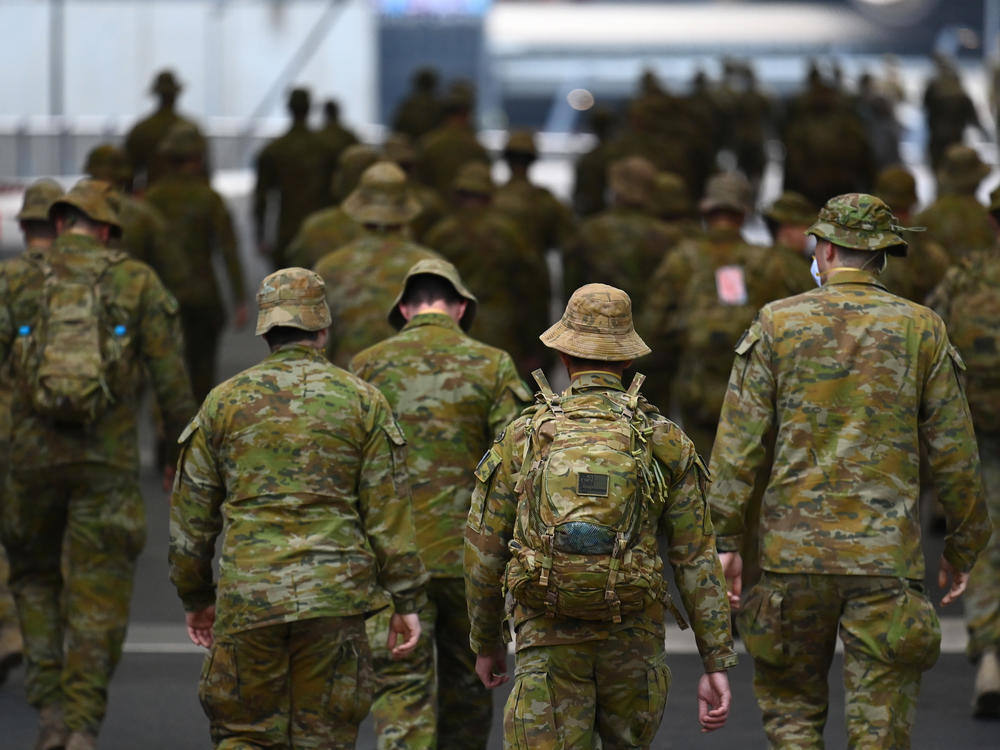Section Branding
Header Content
Australian Special Forces Unlawfully Killed 39 In Afghanistan, New Report Says
Primary Content
Members of the Australian special forces allegedly killed 39 people during operations in Afghanistan in violation of international law, according to the findings of a long-awaited report.
Results of the inquiry, which is the culmination of four years of work, were released by the country's military chief Angus Campbell. It found credible evidence of instances, at various points from 2009 to 2013, of serious unlawful actions by members of the Australian Defence Force. It also detailed other instances of war crimes committed by soldiers.
The findings showcase a "disgraceful and a profound betrayal of the Australian Defence Force's professional standards and expectations," Campbell said, according to the Sydney Morning Herald.
The report, containing large sections that are redacted, found that 25 current or former Australian Defence personnel were involved in the killing of 39 Afghan nationals or noncombatants considered captured or injured and no longer a threat.
Further, the investigation found credible evidence that members of the special forces group engaged in the "cruel treatment" of prisoners on at least two occasions, also in violation of international law and considered a war crime.
"None of these are incidents of disputable decisions made under pressure in the heat of battle," the report said.
It relied on interviews of more than 400 soldiers, officers, Afghan villagers and others.
The damning report released in Australia may lead to the criminal prosecution of those, so far unnamed, soldiers involved. It recommended that Campbell refer 36 incidences to the Australian Federal Police for criminal investigation, involving a total of 19 individuals.
Prime Minister Scott Morrison said last week that a special investigator would be appointed to consider next steps in possible prosecutions, according to the BBC.
Campbell emphasized cultural issues within the military were to blame for the allegations, he said in a speech ahead of the report's release.
A "misplaced focus" on a "distorted culture" focusing on prestige, status and power, are to blame, Campbell said. This "was embraced and amplified by some experienced, charismatic and influential non-commissioned officers and their proteges, who fused military excellence with ego, entitlement and exceptionalism," he said.
Changes are being implemented to prevent that from continuing, he said.
The Special Air Service Regiment's second squadron, which was associated with several instances of wrongdoing mentioned in the report, will be struck off the Army's order of battle, reformed and renamed, the Herald reported.
Some members of the Special Operations Task Group, which was responsible for several unlawful actions, took active steps to conceal their crimes, the report indicated. They placed weapons — such as easily concealable pistols, handheld radios, weapon magazines or grenades — on the bodies of those killed. They took photos of the bodies to frame their victims as legitimate targets.
The investigation found that junior soldiers were also required by their patrol commanders to shoot a prisoner in order to achieve the soldier's "first kill" in a practice known as "blooding," according to the report.
"While it would have been much easier to report that it was poor command and leadership that was primarily to blame for the events disclosed in this Report, that would be a gross distortion," the report said. "But for a small number of patrol commanders, and their [protégés], it would not have been thought of, it would not have begun, it would not have continued, and it would have been discovered. It is overwhelmingly at that level that responsibility resides."
This is not the first time allegations of war crimes during the conflict Afghanistan have arisen. In March, the International Criminal Court (ICC) gave the OK to begin an investigation into war crimes that may have been committed by U.S. soldiers and others in the war.
Copyright 2020 NPR. To see more, visit https://www.npr.org.

